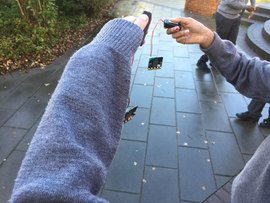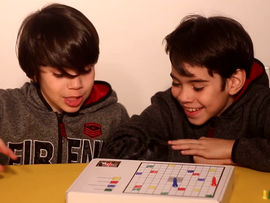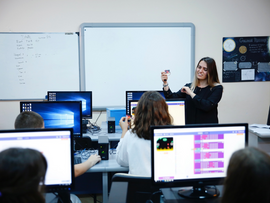Kompiuteriukai vaikams (Computers for Kids)
The ‘micro:bitmobile’ race where everyone wins
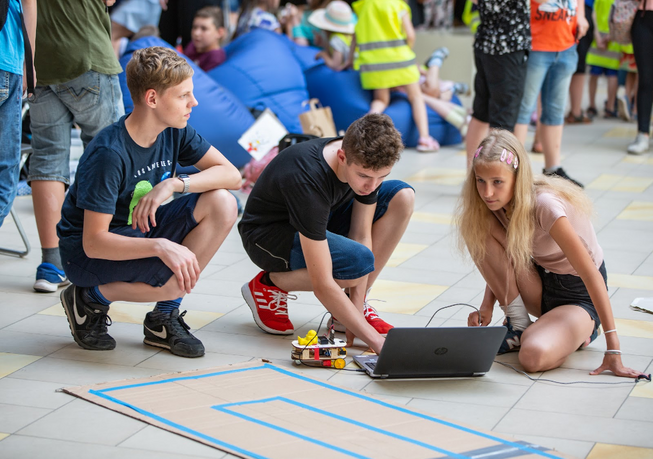
Children from 40 schools across Lithuania have taken part in their own toy story. To celebrate two years of the Microcomputers for Kids (Kompiuteriukai vaikams) initiative, a rally held in June 2019 challenged teams of teachers and students to bring old toys back to life as micro:bit automobiles.
Building on knowledge gained in volunteer-led workshops, in which they learned to code and create electrical circuits, the 200 participants raced their “micro:bitmobiles” in four categories. The rally track itself needed to be easy to transport, sustainable and robust enough to withstand heavy traffic. The low-tech solution? Cardboard!
Teachers Jolita Kaupienė and Ričardas Gečas said: “It was a day of excitement and tension! It’s a great pleasure to know that our team was the best, because the kids were very responsible in preparing for the race. Although we didn't know what the tasks would be, we improved our technical skills to build a self-driving car.”

We were surprised by the micro:bit – the gaps, the holes, the buttons!

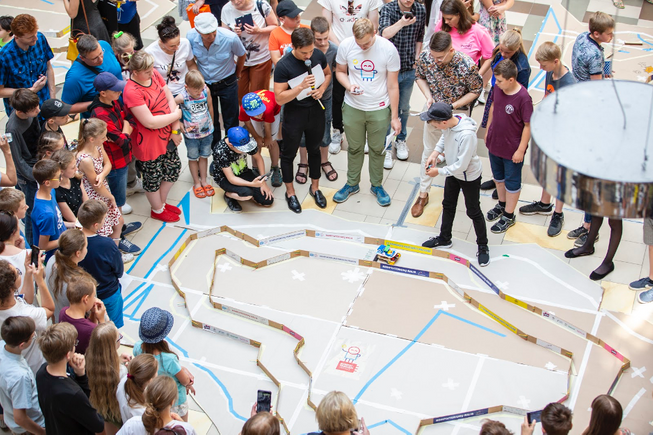
The grassroots Microcomputers for Kids initiative was launched in 2017 to teach children the basics of computational thinking and inspire technical creativity. The founders believed that ICT teaching in Lithuania was 10 years out of date and decided to step in to help teachers keep pace with innovation.
With the support of philanthropic individuals, businesses and local government, micro:bits were delivered to 20,600 children aged 11-12 – that’s 90% of the fifth-graders in the country. Next, 120 volunteers trained the children and their teachers to use the micro:bit through exciting technical projects. And for the second year of the project the goal was even bigger: to overhaul the curriculum and make Lithuania a leader in computer science.
According to Viltautė Žvirzdinaitė, who manages the initiative, another of the main aims was the empowerment of teachers. “We are working to help informatics teachers deliver modern lessons by providing them with the tools they need,” she said.
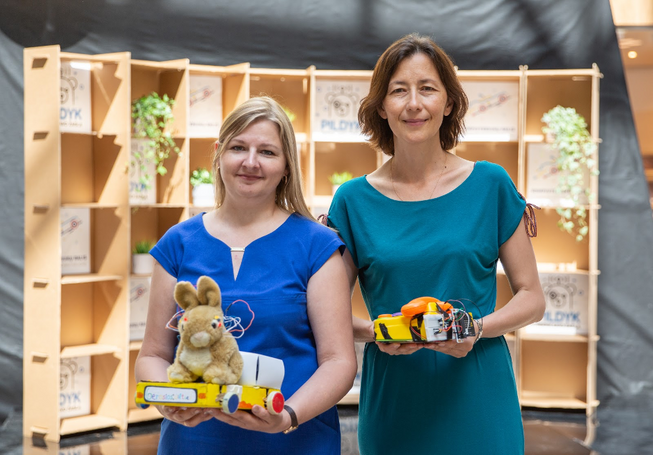
A participating student said: “Technologies get updated, soon robots will replace us, so I would like to join this future. We were surprised by the micro:bit – the gaps, the holes, the buttons. I like very much to try new things, get results, do something creative.”
The Microcomputers for Kids Foundation is aiming to create 20 lessons and to bring computer science into other subjects, such as geography, music and maths. It also wants to create a platform where teachers can share their knowledge, so they can prepare the next generation to be technological innovators.
